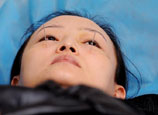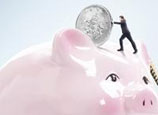
However, Xu said, the structure of China's government spending is far from reasonable. One example is the proportion of expenditure on the social welfare system, which is only half of the US' level of 36 percent.
"A large proportion is re-invested in State-owned enterprises," he said.
He cited data showing that 20 trillion yuan ($3.21 trillion) of State-owned assets have only turned in less than 80 billion yuan in 2011, of which only 5 billion yuan was injected into the social security fund.
Xu made the statements at a forum sponsored by Caijing magazine in Beijing.
It's not the first time that the high tax burden in China has been put under the spotlight. Experts have called for lifting the personal-income tax threshold to 10,000 yuan a month, after it was raised from 2,000 yuan to 3,500 yuan in September 2011.
But Xu said the tax reform should not only focus on the personal income tax - which only accounts for less than 7 percent of tax income in China - compared with 70 percent in the US tax system.
"In the Chinese system, indirect tax and corporate income tax together account for more than 80 percent of revenue, and a fair amount is paid by the higher-income group, such as business owners," Xu said.
"A good tax system should be able to take care of the lower-income group, and at the same time, encourage rich people to stay in the country, because economic development relies on their investment, management skills and expertise," he said. At the moment, 90 percent of companies account for 10 percent of tax revenue, thus a small reduction of tax rates by 2 to 3 percentage points may benefit a wide range of businesses, Xu said.
















 Memorial service held for China's fighter jet production head
Memorial service held for China's fighter jet production head


![]()
